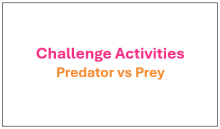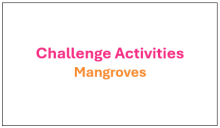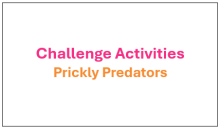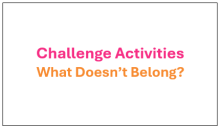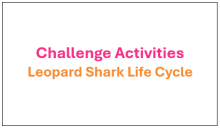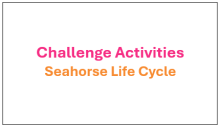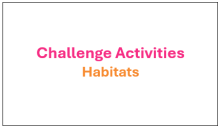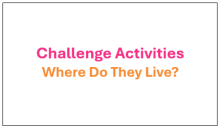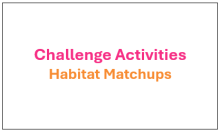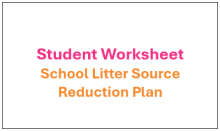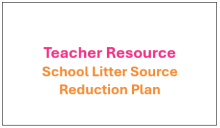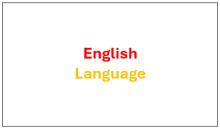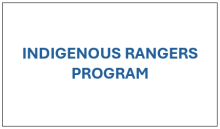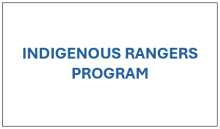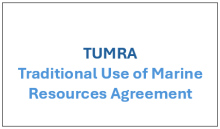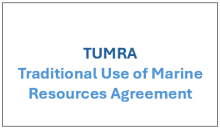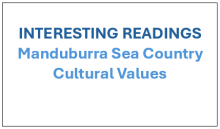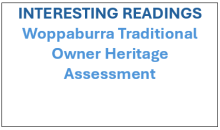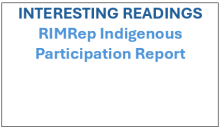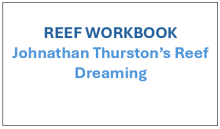- All pages
- Primary school
- Middle school
- Senior school
Primary Grade 4 - Predator vs Prey
Select one of the predator-prey relationships below and describe, or draw a
diagram to show:
a) How the predator "attacks" its prey
b) How the prey avoids being attacked
Primary Grade 4 - Prickly Predators
There are many animals that use mangrove forests for their home both above and below the water. colour all the animals that you can find, then answer the questions on page 2.
1. Identify as many organisms as you can and record their names below.
2. Explain why mangrove forests are important ecosystems?
3. Create a Mangrove Forest food chain using organisms identified on page 1
Primary Grade 4 - Prickly Predators
Questions
1. How many arms can a crown-of-thorns starfish have?
2. Describe how Crown-of-thorns starfish feed?
3. Explain an outbreak of Crown-of-thorns starfish and how it impacts the health of a reef?
4. Identify what we can do to reduce Crown-of-thorns starfish numbers on the reef?
Label the image below with the following features.
Primary Grade 3 - What Doesn't Belong?
1. Identify and circle the non-living things in the picture above.
2. List all the living things you can find.
3. Colour in the coral reef ecosystem.
4. Extension: Choose one of the non-living things in the picture that could be harmful to a coral reef. Explain why it is harmful and what you can do to prevent it from occurring.
Primary Grade 3 - Leopard Sharks Life Cycle
Find the missing word in the text below.
Primary Grade 3 - Seahorse Life Cycle
Find the missing word in the text below.
Pagination
Primary Grade 1 - Habitats
Coral reef colouring worksheet.
Primary Grade 1 - Where Do They Live?
Cut and Paste Activity on correct habitats for marine sea life?
Primary Grade 1 - Habitat Matchups
1. Match the animal with their habitat by drawing a line between them.
2. Pick one of the habitats above and investigate what other animals may live there.
3. Draw a picture of you chosen habitat and include some of the animals you have found.
Student Worksheet - School Litter Source Reduction Plan
Student Worksheet - School Litter Source Reduction Plan
Teachers Resource - School Litter Source Reduction Plan
This tool may assist Teachers to complete the worksheet.
ACTIVITY Chatterbox - English Language
Unlock the secrets of learning with our Chatterbox Challenge in English Language – where every fold leads to new knowledge!
Pagination
VIDEO - Indigenous Ranger Training on the Reef
We recently brought together a number of Indigenous ranger groups from across the Great Barrier Reef to complete incident management training. Aboriginal and Torres Strait Islander people are the Traditional Owners of the Great Barrier Reef region, and evidence of their sea country connections goes back over 60,000 years.
VIDEO - Indigenous Rangers on the Reef
The Indigenous ranger's program is a nationally accredited training course by the Great Barrier Reef Marine Park Authority. It provides rangers with the skills to ensure Marine Park users comply with its rules and traditional lore.
The Authority understands that having an effective and meaningful partnership with Traditional Owners is essential to protect cultural and heritage values, conserve biodiversity and enhance the resilience of the Reef.
VIDEO - Traditional Use of Marine Resources Agreements
The Marine Park Authority and Traditional Owners are working together to integrate modern marine park management and traditional knowledge to protect this irreplaceable iconic World Heritage Area.
Traditional Use of Marine Resources Agreements are community-based plans for management of traditional resources which are accredited in legislation and have proved a successful mechanism for joint management of the Reef.
Traditional Use of Marine Resources Agreements describe how Great Barrier Reef Traditional Owner groups work in partnership with the Australian and Queensland governments to manage traditional use activities on their sea country.
POSTER - Marine Resources Agreement (TUMRA) Areas Poster
Determined Native Title and Traditional Use of Marine Resources Agreement (TUMRA) areas in the Great Barrier Reef Marine Parks as of September 2021!
INTERESTING READINGS - Manduburra Sea Country Cultural Values
Chart a course through Mandubarra Sea Country with our mapping project! Discover the key cultural values held by Mandubarra Traditional Owners and navigate the rich heritage of this sacred land.
INTERESTING READINGS - Woppaburra Traditional Owner Heritage Assessment
Navigate the rich heritage of the Woppaburra Traditional Owners.
Pagination
VIDEO - Traditional Use of Marine Resources Agreements
The Marine Park Authority and Traditional Owners are working together to integrate modern marine park management and traditional knowledge to protect this irreplaceable iconic World Heritage Area.
Traditional Use of Marine Resources Agreements are community-based plans for management of traditional resources which are accredited in legislation and have proved a successful mechanism for joint management of the Reef.
Traditional Use of Marine Resources Agreements describe how Great Barrier Reef Traditional Owner groups work in partnership with the Australian and Queensland governments to manage traditional use activities on their sea country.
POSTER - Marine Resources Agreement (TUMRA) Areas Poster
Determined Native Title and Traditional Use of Marine Resources Agreement (TUMRA) areas in the Great Barrier Reef Marine Parks as of September 2021!
INTERESTING READINGS - Manduburra Sea Country Cultural Values
Chart a course through Mandubarra Sea Country with our mapping project! Discover the key cultural values held by Mandubarra Traditional Owners and navigate the rich heritage of this sacred land.
INTERESTING READINGS - Woppaburra Traditional Owner Heritage Assessment
Navigate the rich heritage of the Woppaburra Traditional Owners.
INTERESTING READINGS - RIMReP Indigenous Participation Report
Unlock the wisdom of the land with captivating readings from Traditional Owners. Dive into their stories and enrich your understanding today! Includes information on co-management and a diagram of integrated Indigenous and scientific knowledge of dugongs.
Johnathan Thurston's Reef Dreaming - Reef Workbook
Workbook including range of scientific and sea country activities and a poem.

